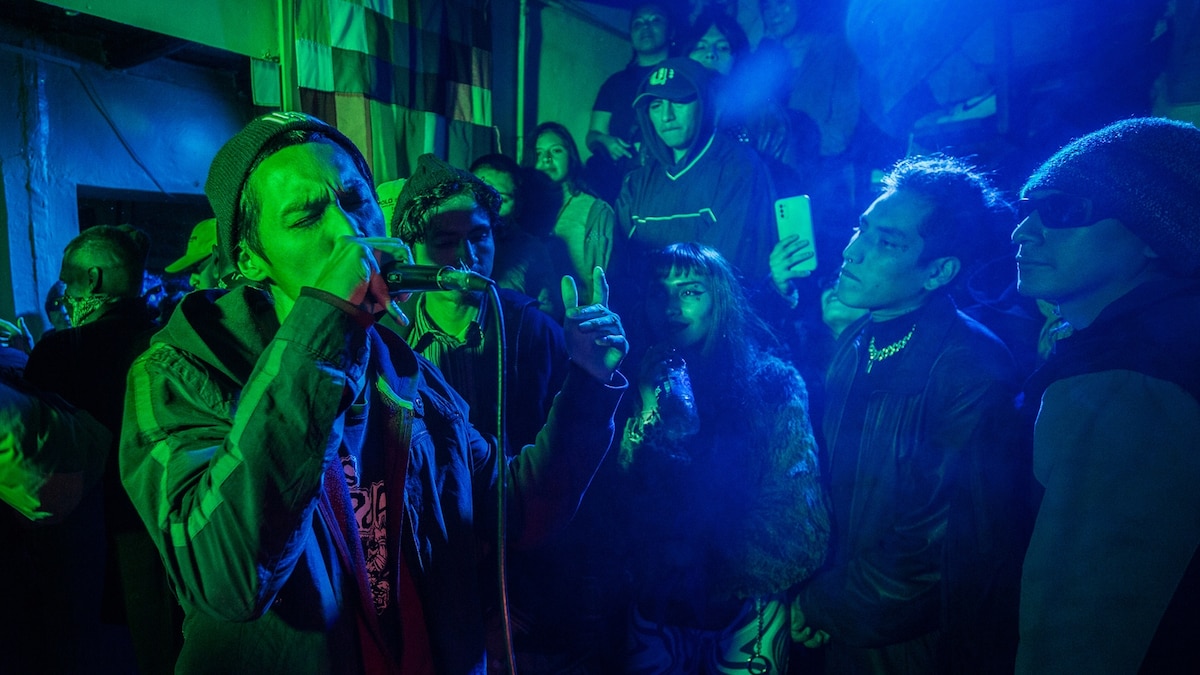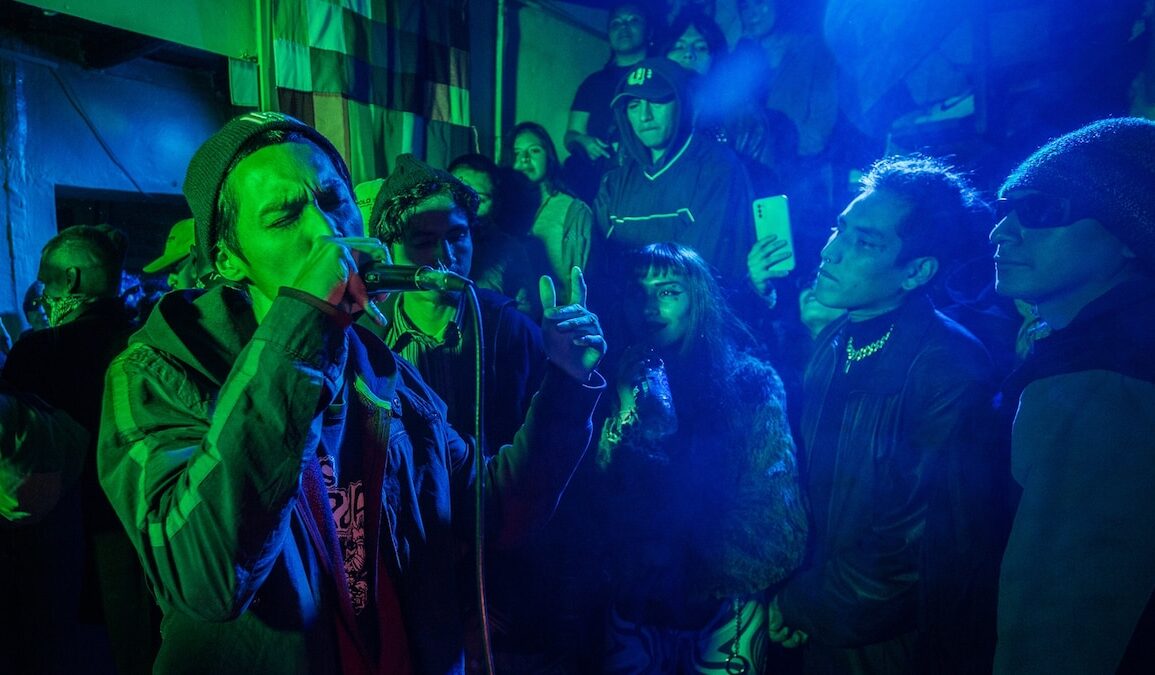
It’s a sunny January afternoon in Juliaca, a city near the banks of Lake Titicaca in the high plains of southern Peru. Thousands of Indigenous Quechuan and Aymara people have gathered in the town’s main square to commemorate the massacre of 18 political protesters and bystanders by government security forces one year ago. Among them is a man on a black horse, decked out in a black jacket, a broad-brimmed black hat, and mid-calf black-and-gold boots. He’s dressed to evoke the country’s most iconic revolutionary figure: Túpac Amaru II, the Indigenous cacique, or chief, who led a rebellion against the Spanish Empire and became a symbol for resistance in the Andes. The man is known as Cay Sur—kay (Quechua) plus sur (Spanish) means “This South”—and he’s there to express solidarity with the victims. He’s also there to rap.
From horseback, Cay Sur performs his song “Próceres” (“Heroes”), its hip-hop beat pulsing through the crowd. Many recognize him from YouTube—and identify with his lyrics. “Manan wañuchispachu llaqtayta atipanki,” he shouts in Quechua. “By killing, you will not defeat my people.”
At 20, Cay Sur, whose name is Yerson Randy Huanco Canaza, is among a growing generation of young musicians making hip-hop with a specifically Indigenous voice. Like many of them, he draws from multiple cultures and traditions—Spanish and Quechua speaking, global and local, ancient and modern. And with his fellow artists, he’s creating something entirely new: a soundtrack for Indigenous youth eager to reclaim their Andean roots and language.
This post was originally published on this site be sure to check out more of their content.







